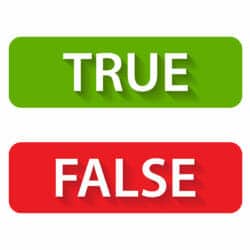What’s the difference between a city or municipal inspection and a regular home inspection?
Home » Inspections »
Buyers are often confused when their agent brings up the need for a professional home inspector and also an inspection conducted by the local building department or local municipality. The question is why have two, and what is the difference?

City or municipal pre-sale inspections go by many names
- Re-occupancy inspection
- Certificate of Compliance
- Property Maintenance inspection
- Point of Sale inspections
What cities require a municipal Pre-sale Inspection
First, not all municipalities require a “Presale Home Inspection”, but the trend is that more and more cities are requiring one. To determine if your area requires one, you can call the city, check the city’s website, or check with your real estate agent.
Municipality / City Pre-sale Inspections
The seller is normally responsible for obtaining this inspection, as well as paying for the inspection. Also, the cities that requires this type of inspection, normally requires that it be done before title can be transferred or before closing.

What does this type of inspection cover?
What a city or municipal inspection covers varies greatly from city to city. Some of the more common things inspected or reviewed is:
- Permits
- Zoning
- Set back requirements
- Parking compliance
- Health and safety issues, such as smoke alarms and carbon monoxide detectors
These types of inspections can be very simple to rather complex.
Who conducts the inspection?
Generally it is performed by a local code enforcement officer or local building inspector.
How long does it take?
Depending on the scope of the inspection, the length of time will vary. The onsite time for a municipal inspector is actually only part of the total time. Usually the inspector will go through the public records on the property involving permits, zoning, compliance citations and other public records before coming out to the property. The actual onsite time normally takes 30 minutes to 2 hours, depending on what the municipal inspector is required to check.
Who pays and who orders the inspection?
Generally the seller pays for the inspection. The cost varies from city to city. A quick check of the local city or county’s website will generally give the cost and how to order the inspection.
The seller, or legal representative, is the one who usually orders and schedules the inspection.
What’s a Professional Home Inspection by a Private Inspector?

A home inspection is a visual general examination of a home’s condition, usually performed in connection with the sale of a home. The inspection will normally cover various components and systems of a home.
Generally it includes inspecting the siding, roof, foundation and slab, heating and cooling systems, plumbing, and the electrical system. Also the inspector will look for damaged components, water stains, leaks, evidence of fire or flooding and hazardous conditions.
Generally the inspection doesn’t cover
- Zoning and compliance issues
- Permit checks
- Setback requirements
- Landscaping
- HOA requirements (if there is an HOA)
- Testing of fire sprinkler systems
The “Scope of Work” will tell you the details of what the inspection includes
For a detailed list of what the home inspector will look at or not check, ask to see a scope of work and the inspection contract. Also, if the inspector belongs to a professional organization, then review the “Standards of Practice” on their website.
How long does an inspection take?
The length of time that a home inspection takes depends on a number of variables. Things that affect the time it takes:
- Size of the home
- Age of the home
- Whether on a slab or on a raised foundation
- Is there a basement
- Is the home vacant or occupied
- How many issues the inspector runs across (basically the overall condition)
- Is it a condo, single family residence or other type of property
- Is there a swimming pool or spa and if they’re included in the inspection
An average inspection may take 1.5 hours to 3.5 hours or even longer depending on the above items.
Who pays and who orders the inspection?
Generally the buyer pays for the inspection. The cost varies from area to area and on the inspector’s experience and qualifications. A quick check with the inspector you have chosen or his website will generally give the cost and how to order the inspection.
Usually the buyer or the buyer’s agent, if directed, will order and schedule the inspection. When the home is occupied, then the seller may need to be contacted to approve when the inspection is scheduled for. Most sellers are usually very co-operative in scheduling. At times, if there is a tenant, it may occasionally be a little more difficult to schedule an inspection.
Bottom Line
A city or municipal inspection may be required by the city or municipality, where as a home inspection is optional and it is up to the buyer whether they want one.
A city or municipal inspection is usually paid for by the seller and a regular home inspection is usually paid for by the buyer.
Both inspections may cover items like smoke alarms or carbon monoxide detectors; however, they may differ in many other ways. The city inspection may cover permits, zoning and parking issues, but may not include an inspection of the roof, electrical panels and the plumbing system.
Both types of inspections benefit the buyer. It’s wise for a buyer to have a regular home inspection regardless of whether the city or municipality requires one of their own. Overall, the private home inspection will generally cover more items, be more through and is generally considered the most important.



